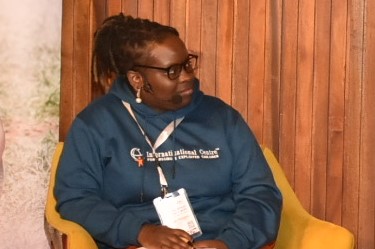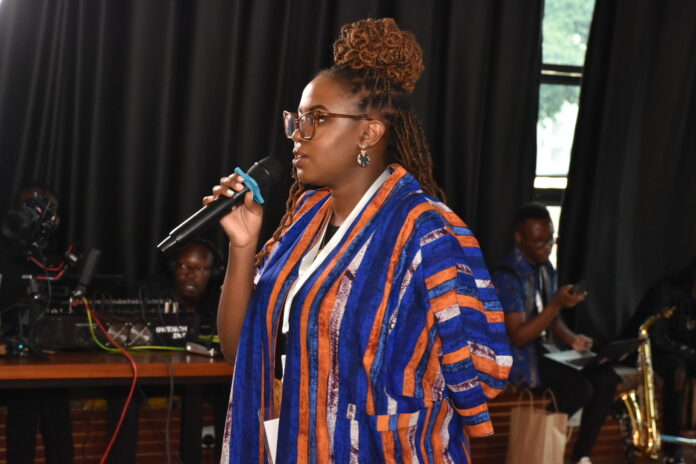By Omboki Monayo
Nairobi, Kenya: Ms. Jecinta Agunja is a worried woman. The source of her worry and that of many other parents is the mobile phone, which is rapidly becoming a common feature of life in Kenya.
Agunja who is a mother and a human rights advocate and defender lives in Mathare, an informal settlement that has a population of 206,564, which works out to an average of 68,941 persons living within a square kilometer.
Kenya’s national population density on the other hand is 82 persons per square kilometre.
Mobile phone usage in Kenya with a population of 47.5m people living in 12.2m households is growing by leaps and bounds every day, with the Communications Authority of Kenya (CAK) indicating that some 60.7 million mobile phone devices were connected to mobile networks as of 30th September 2022.
Of these, CAK data shows that 32.9 million were feature phones while 27.9 million were smartphones. This represents a penetration rate for feature phones and smartphones as a percentage of the total population at 66.5% and 56.4% respectively.
Young people in the country aged 18-25 years also averagely spend more than 6 hours in a day on the Internet. Digital news outlet Business2Community estimates that almost 15% of all digital media time is spent on mobile devices.
According to online data trend monitor techjury.com, most people, or 96% of internet users between 16 and 64 years own a mobile phone. 96% of people in this group own a smartphone.

Some 63% have a laptop or a computer, with around 35% using a tablet device and at least 27% have a smartwatch or wristband while 20% are owners of a games console.
Of this group, 15% have a TV streaming device, while 14% have upgraded their homes with a smart home device.
Ms. Agunja, a human rights-based advocate who works for the Coalition of Grassroots Human Rights Defenders (CGHRD), says the phone has become both a source of joy and pain in the lives of many families in the informal settlement she calls home.
“Parents have to be vigilant so as to prevent our children from accessing adult content on mobile phones. This is however proving to be a hard task since we may not always be able to monitor where the children go or who they associate with whenever they are out of our sight,” she says.
According to Cpl Truphena Naisukwa, who serves as a senior correctional officer at Kamiti Maximum Prison, mobile phones can cause havoc in a home with minors if left to them unsupervised.
“Mobile phones with an internet connection can become a nuisance if their use is not monitored. This is because children can use them to access adult content that will provide them with information that their young minds have not yet been trained to handle or judge,” said Ms. Naisukwa.
Speaking to Talk Africa Magazine in Nairobi at an event organized to mark the Day of the African Child by Wakilisha Initiative on June 15, 2023, the prison officer said there is a need for parents to take a closer look at the content their children are accessing online.
“We must be very keen on what our children are looking at whenever they are on the phones. This is because the Internet is a massive jungle of different sources of information, including some that can entice them into criminal activity, drug and alcohol addiction as well as other forms of antisocial behavior,” she said.
The theme for this year’s Day of the African Child as set by The African Committee of Experts on the Rights and Welfare of the Child (The Committee/ ACERWC) is “The Rights of the Child in the Digital Environment”.
On her part, Wakilisha Initiative Chief Executive Officer Elizabeth Njambi said there is a need for stricter monitoring of content made available on the online platforms owned and operated by tech giants headquartered overseas.
Wakilisha works with lawyers to provide pro bono services to children in conflict with the law, who face legal challenges as a result of court cases.
It also promotes rehabilitative justice through mentorship and talent development, create public awareness of the needs and right of children in conflict with the law and advocate for a child-friendly justice system
She explained that the increased vigilance would serve to protect Kenyan minors in case of crimes committed by perpetrators operating through social media platforms.
She cited the case filed by former Facebook employees in Kenya who had been assigned to moderate content on the platform as an important milestone in efforts to bring big tech companies to book for violations committed on Kenyan soil.
“We were elated by the decision of the courts to recognize that our laws have jurisdiction over violations committed on Kenya soil, despite the fact that the companies that own those platforms were started and registered in other countries,” said Ms. Njambi.
She revealed that Wakilisha was committed to increasing public awareness of the legal rights of children.
“We are determined to ensure that more Kenyans are aware of the legal rights of minors so as to be able to identify and even report violations when they occur, “ said Ms. Njambi.
On the flip side, ubiquitous devices are also teaching tools that parents in our partly digitized education system cannot do without.
“Phones are used to source for some of the assignments that children studying under the Competency Based Curriculum (CBC) are given at school. The problem is that not all of us have smartphones, and so we have to rely on cyber cafes to enable the children to complete those assignments,” says Ms. Agunja.
She points out that the lack of wifi and the relatively expensive cost of mobile phone data bundles has left most parents with the option of allowing their young learners to visit cyber cafes to access the required learning materials.
“In the informal settlement, wifi connection is not common and most people can access the internet using their mobile phones. However, the presence of cyber cafés, which provide cheap internet services, has eased the situation for the children with assignments that require sourcing for online learning materials,” she says.
This option, she explains, also comes with its dangers to minors “At the cyber cafes, most of the business owners do not restrict the children from watching whatever content they may want to watch, including videos that they will probably never be allowed to watch at home. This has created a window of opportunity for the young ones to be corrupted by getting exposed to adult or antisocial content from an early age,” she tells Talk Africa Magazine.
The digital revolution has also ushered in another powerful but silent foe that is rapidly bearing down on Kenyan minors, just like their counterparts in the Global North.
According to Elizabeth Njambi, who is the Wakilisha Initiative founder and chief executive officer, online predators are now using mobile technology to groom unsuspecting minors through internet chatrooms.

Athen Morgan, who is the Africa Regional Project Manager at the International Centre for Missing and Exploited Children(ICMEC) International Missing Children, concurs.
“Pedophile groomers and child porn vendors are tracking and trapping minors into situations of sexual abuse through the chat rooms of apps such as Instagram, Spotify, and games such as Minecraft. We are aware of cases where sexual abuse or attempted abuse has taken place after the abuser approached the minors through online platforms,” says Ms. Morgan.
She is advising parents to take a closer look at their children’s mobile phone usage, with a view to ensuring that they are not engaging in unhealthy conversations with strangers.
“Create time to find out which sort of social networks your children are creating and joining online. This way, you can ensure that they will not fall victim to groomers and other online predators,” says
She also points out that mobile technology can be used to create alerts on missing children, as well as tracking them before they are harmed or trafficked by their abductors.
Ms. Morgan and Ms. Naisukwa are now asking parents to be more intentional about parenting their children.
“Spend more time with your children, and listen to their concerns,” says the corrections officer. According to Ms. Morgan, at least an hour spent with children every day will make a solid difference in their growth and character development.
She wishes there was a law that compels parents to devote at least an hour every day to their children, apart from helping them with homework or assigning them household chores.














